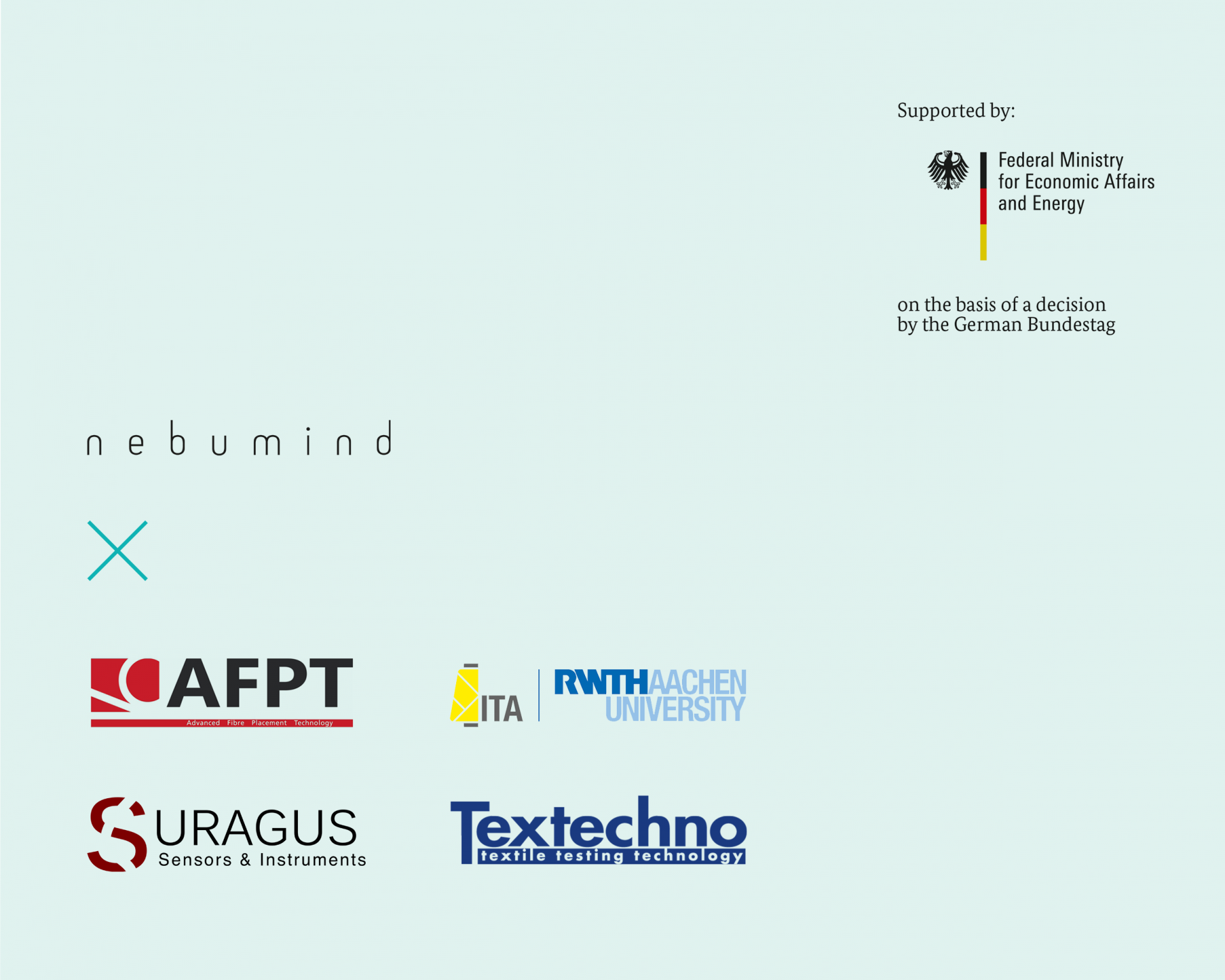


10/03/2021
Together with our partners AFPT, SURAGUS, Textechno, RWTH ITA, nebumind is part of an innovative project, „TapeCheckSim“, which is funded by the Federal Ministry for Economic Affairs and Energy of Germany. The project focuses on composite manufacturing and aims at avoiding the occurrence of material-related defects during automated tape laying (AFP). This is realized by creating a digital twin enabling a quality analysis prior to tape laying in order to detect faulty material sections. We are looking forward to an exiting project with our partners!
Fiber-reinforced plastics (FRP) have a significantly higher lightweight potential than metal materials and therefore show great potential for industries, such as Space, Aviation and Automotive. Currently, their widespread use is failing though due to high component costs and scalability to larger production runs. The reasons for this are high personnel costs due to manual production and high material waste of 25-50% when using textile reinforcements.
Automated tape laying (ATL) is one way of reducing personnel costs, increasing productivity and cutting waste by up to 45%. In this process, spread fiber tapes are deposited directly onto the mold surface by a robot. By stacking these tapes layer by layer, FRP components are produced additively. However, during ATL, quality defects in the tape material (e.g. variation in tape width) create defects in the laydown (e.g., gaps/overlaps), which can reduce mechanical properties such as strength and stiffness by up to 27%.
A non-automated visual inspection of each deposited layer takes about a quarter of the total process time for tape laying processes. Undetected defects lead to component scrap during final inspection and thus cause high costs. If inline-inspection is neglected, high safety margins have to be taken into account in the component design, which increases the material input and increase the component weight. For this reason, online quality inspection systems have been developed in recent years for online integration into the tape laying process. However, these have the disadvantage that defects are only detected once they have already been deposited.
Active defect prevention is not possible with these approaches. In addition, in-situ simulation approaches have been developed that use online data from the quality inspection systems to simulate the „as-built“ properties of a component and thus make a decision on whether a defect is tolerated or should be removed. Since the data is collected during the process, only very short simulation times are available, which makes an accurate prediction of the component properties difficult. Another shortcoming of existing quality assurance systems for tape laying is that they can detect defects in the laminate but only to a very limited extent defects in the incoming material.
The aim of the project is to avoid the occurrence of material-related defects during automated tape laying. This is realized by a quality analysis prior to tape laying in order to detect faulty material sections. For this purpose, SURAGUS GmbH and Textechno H. Stein GmbH & Co. KG are developing a suitable sensory system that enables continuous, non-destructive testing of the tape material. Material defects can be detected and localized on the tape spool. This information forms the digital twin of the tape spool. The correlations between tape quality and the resulting mechanical composite properties are determined in coupon tests at ITA. Based on this data, a neural network is implemented at ITA to predict the defect-specific knock-down factors.
The path planning software of the tape laying system provides information about the position within the component where the affected tape sections are laid down. In the component simulation, which is carried out at ITA, this information is linked to create a digital twin of the defective component. The simulation model predicts whether the induced defect in the component would lead to critical component behavior. In this case, the corresponding tape section is cut out in the placement process and not deposited. The new process chain will be implemented on the equipment of AFPT GmbH. The implementation of the necessary infrastructure for data exchange between the individual subsystems and the data processing will be carried out by
nebumind GmbH.
The active avoidance of material-related defects leads to increased productivity by eliminating high non-productive process times for inspection and defect removal. By avoiding high safety margins, the use of materials can be further optimized. The knowledge gained about 3/4 the correlation between tape quality and mechanical component properties simplifies material selection and increases the accessibility of ATL technology for the user.
The research project is funded by the German Federal Ministry for Economic Affairs and Energy (BMWi) as part of the Technologietransfer-Programm Leichtbau (TTP LB) (funding code: 03LB5001E) on the basis of a decision by the German Bundestag.
Caroline Albert